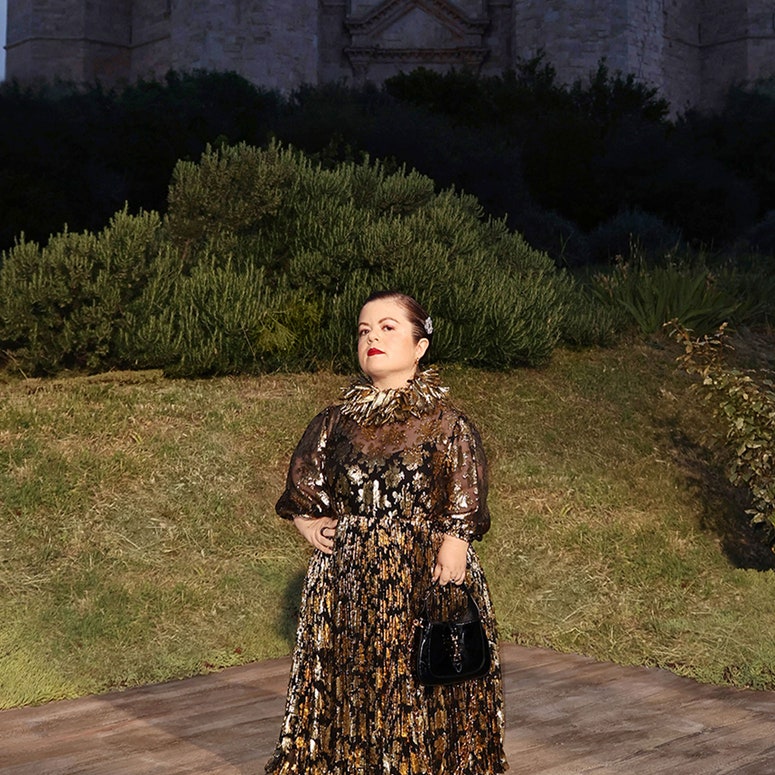To receive the Vogue Business newsletter, sign up here.
Before the pandemic, disability rights advocate and consultant Sinéad Burke seemed to be making strides in her mission to make fashion more accessible. Luxury brands from Gucci to Balenciaga designed custom adaptive gowns for her, invited her to sit front row at their shows, and scheduled meetings with their creative directors and CEOs. Then, Covid-19 hit, and Burke’s definition of success changed.
During the pandemic, remote working, flexible hours and reasonable adjustments — concepts that disabled people were well-versed in — entered the mainstream. But, even in this context, Burke felt that many people only began to understand and empathise with disability when it affected them personally. Progress, she realised, was still very slow — and this was as true of the fashion industry as it was of wider society.
Read More
Gucci disrupts disability inclusion
Capsule collections have helped make adaptive fashion more mainstream, and a handful of brands are adding more inclusive HR policies, but Gucci is thinking far more broadly. The luxury house hopes to create systems change, a disruptive approach to disability inclusion that could benefit all customers.

“The pandemic forced me to question whether my work in the fashion industry had actually made it more accessible or whether it was just more accessible to me,” says Burke, a little person with achondroplasia. This reckoning prompted her to found accessibility and inclusion consultancy Tilting the Lens in October 2020. “I was very mindful of not becoming the exception. Instead, I wanted to create critical paths so that as many multiply-marginalised disabled people as possible would be able to succeed and achieve within a system largely based on exclusion. Access benefits everybody.”
In the three years since, Tilting the Lens has built a client roster spanning luxury and mass markets, improving accessibility as a way to cater to previously overlooked disabled consumers and to create critical paths for disabled workers, whose potential has been ignored for so long. Its imprint includes Farfetch, Ralph Lauren and Capri Holdings (who owns Versace, Jimmy Choo and Michael Kors) in the fashion sphere; Netflix and Pinterest in tech; and Jo Malone and Unilever in beauty and personal care. It has delivered workshops and training sessions that prompted improvements to the accessibility on Gucci’s e-commerce site and earned the brand a perfect score in the annual Disability Equality Index. But systemic change remains elusive.
Role modelling an accessible and inclusive workplace
Tilting the Lens is powered by an all-disabled team, an intentional choice to practise what it preaches, and build convincing case studies of an accessible workplace for the company’s advisory clients. The fully remote team is split between Dublin, Belfast, Berlin, London and Glasgow, with the same benefits available to all, regardless of territory. “Flexibility is a key pillar of accessibility, so we can cater to each individual’s access needs,” says Burke.
